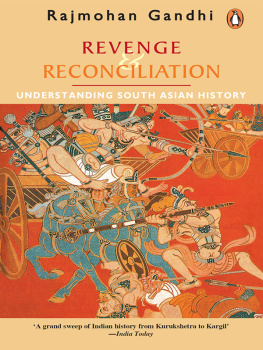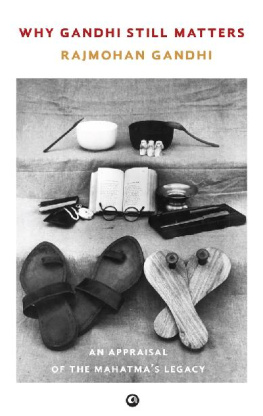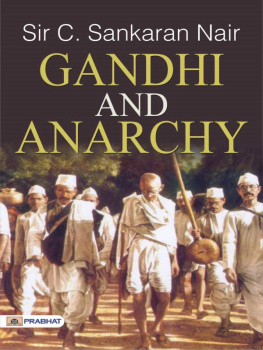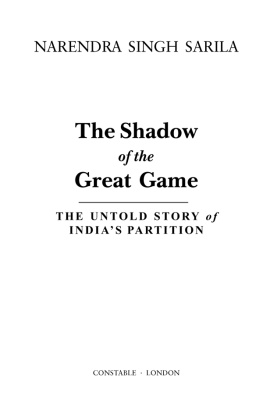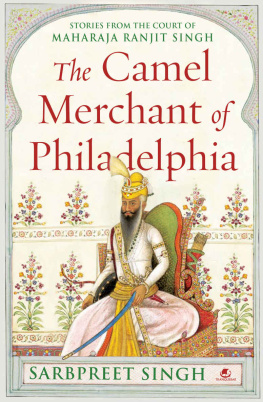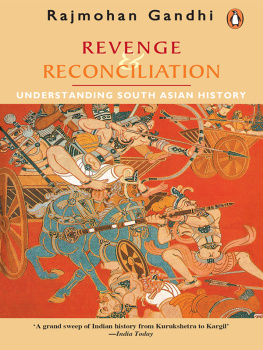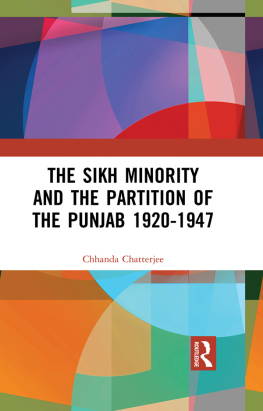About the Book
For centuries, the fertile land of five rivers in the north of the Indian subcontinent was coveted by numerous empires and invaders. In this, the first major account of undivided Punjab, award-winning historian, biographer and scholar, Rajmohan Gandhi, traces its history during its most tumultuous phase from the death of Aurangzeb, in the early eighteenth century, to its brutal partition in 1947, coinciding with the departure of the British.
Relying on fresh sources as well as previous accounts provided from opposing perspectives, the author gives us a compelling narrative about the great events of the time in the region the battles and tragedies that routinely disrupted the lives of ordinary Punjabis, the sacking of iconic cities like Lahore, Amritsar, Multan and Jalandhar by a succession of conquerors, the ravages wrought by invaders like Nadir Shah, the rise of the Sikhs culminating in the storied reign of Maharaja Ranjit Singh, Britains successful wars against the Sikh kingdom, the Great Rebellion of 1857 and its effect on Punjab, imperialist machinations, the influence on the people by leaders of the independence movement like Mahatma Gandhi, Muhammad Ali Jinnah and LalaLajpatRai, as also key regional figures such as Fazl-i-Husain, Master Tara Singh, Sikander Hayat Khan and Khizr Hayat Tiwana, the devastation of Partition and much else besides.
Believing that modern India and Pakistan cannot be understood without comprehending the Punjab that was, the author also delves into the idea of Punjabiyat Punjabiness the literature and poetry of creative giants like Bulleh Shah, Waris Shah, Iqbal, Amrita Pritam and SaadatHasanManto, the spiritual teachings of the Sikh Gurus and Sufi saints, and, above all, the testimonials and narratives of ordinary Punjabis, to create an unforgettable portrait of a place undivided Punjab - that continues to fascinate us (even though it broke up more than six decades ago) and of its hard-tested and resilient people, Hindu, Muslim and Sikh.
About the Author
Rajmohan Gandhis previous book, A Tale of Two Revolts: India 1857 and the American Civil War, was published in 2009 in India, the UK, and the USA. Until end-December 2012 he taught political science and history at the University of Illinois. Dividing his time between India and the United States, Rajmohan Gandhi has also made several visits to Pakistan.
ALEPH BOOK COMPANY
An independent publishing firm
promoted by Rupa Publications India
This digital edition published in 2013
First published in India in 2013 by
Aleph Book Company
7/16 Ansari Road, Daryaganj New Delhi 110 002
Copyright Rajmohan Gandhi 2013
No part of this publication may be reproduced, transmitted, or stored in a retrieval system, in any form or by any means, whether electronic, mechanical, print reproduction, recording or otherwise, without the prior permission of Aleph Book Company. Any unauthorized distribution of this e-book may be considered a direct infringement of copyright and those responsible may be liable in law accordingly.
e-ISBN: 978-93-83064-41-0
All rights reserved.This e-book is sold subject to the condition that it shall not, by way of trade or otherwise, be lent, resold, hired out, or otherwise circulated, without the publishers prior consent, in any form or cover other than that in which it is published.
Also by Rajmohan Gandhi
A Tale of Two Revolts: India 1857 and the American Civil War (2009)
Mohandas: A True Story of a Man, his People and an Empire (2006)
Ghaffar Khan: Nonviolent Badshah of the Pakhtuns (2004)
Revenge & Reconciliation: Understanding South Asian History (1999)
Rajaji: A Life (1997)
The Good Boatman: A Portrait of Gandhi (1995)
India Wins Errors: A Scrutiny of Maulana Azad's India Wins Freedom (1990)
Patel: A Life (1989)
Understanding the Muslim Mind (1987)
For loved friends and torch-bearers of insaniyat, Khushwant Singh (who started in Sargodha and Lahore and now lives in New Delhi) and Mubashir Hasan (who began in Panipat and lives now in Lahore); and in memory of Pyarelal Nayar (1899-1982), who loved Punjab, Bengal and India before and after the three were divided
CONTENTS
PREFACE
Apart from the considerations cited in the Introduction that follows, personal reasons drove me to understand and tell this story. The poisonous winds of 1947 had buffeted millions, and also me, then a boy going from eleven to twelve and living in Delhi, a city which received (and enacted) its own share of convulsion that year.
Two years before that, in November 1945, I had faintly absorbed the drama of three Punjabis, a Hindu, a Sikh and a Muslim, officers all in Subhas Boses Indian National Army, being tried together at the Red Fort for treason against the British Empire. The sound Dhillon, Sehgal, Shah Nawaz had entered Delhis air.
Half a century later, on my first visit to Lahore, I was struck (like many others) by the strong similarities between Delhi and Lahore, including an identical mix of Mughal and British monuments. Interest turned into a bond, and I made several subsequent visits to Lahore, none more enriching perhaps than the one made in 2005, when my wife Usha and I interviewed two dozen or so persons with memories of how Hindus and Sikhs had saved Muslims, and vice versa, in the Punjab of 1947. From those carriers of history we learnt of the insaniyat which in numerous priceless instances defeated the insanity of that year.
In Lahore I also learnt that many in the city continued to miss, more than half a century after 1947, its Hindus and Sikhs.
Surely this former Punjab, a single entity so different from todays two Punjabs, required to be understood. The need for this understanding was further heightened in the 1980s, when I lived close to the conflicts associated with Sikh militancy in Indian Punjab (which took the lives of some people I knew) and could not escape the impact of the Indian armys assault on the Golden Temple, the assassination of Indira Gandhi, the carnage that followed, and the indignities that Sikh friends in Delhi suffered.
Much earlier, in 1948, my assassinated grandfather, the Mahatma, had joined the numberless victims of Punjabs and the subcontinents angers. Punjab had become a part of my life, a question-provoking yet precious part, and I needed to understand it as well as I could.
I should confess that I grew up in Delhi with a mild anti-Punjabi prejudice. The Delhi where I was born in 1935 was not the more-or-less Punjabi city it would become after 1947. In those early days, Delhis was a non-Punjabi world, despite the fact that from 1858 until 1911 the British had administered the city as part of their Punjab province. (Punjab had been the Empires base for crushing the Great Rebellion in Delhi, an exercise in which Sikhs and Punjabi Muslims mainly, but also Dogras and Gurkhas, had enlisted on the Empires behalf.)
Yet this earlier Punjab connection was scarcely noticeable in Delhi in the years preceding 1947. I, and people like me, can remember a time when Banias, Bengalis, Jains, Mathurs and Muslimsto name them in alphabetical orderseemed to be, at least from some perspectives, Delhis dominant communities.


